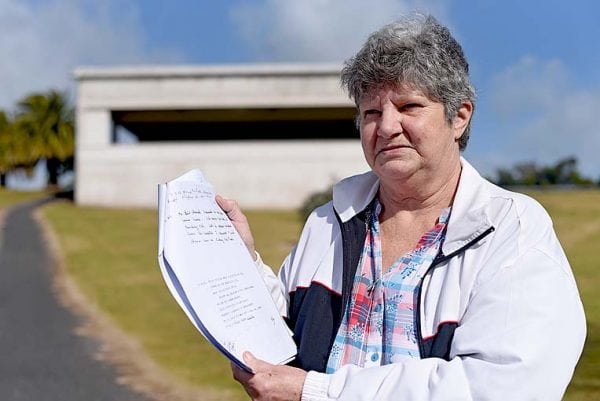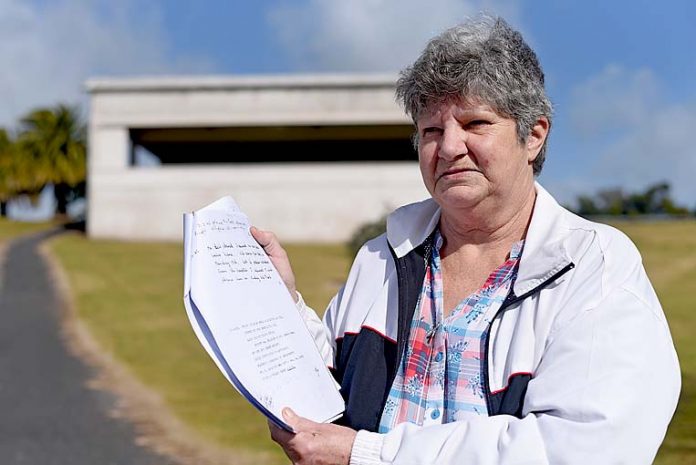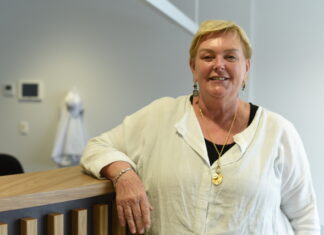
IN A dark room in the basement of the old Mount Gambier Hospital in the mid-1960s, a newborn baby was taken from a 14-year-old mother with force.
This is the harrowing claim of Mount Gambier resident Joy Knight, 68, who has broken her silence after 50 years of keeping this secret.
Ms Knight gave birth to a healthy baby boy on February 20, 1965.
“There must be a royal commission into the handling of forced adoptions at Mount Gambier during that time – my baby was given to strangers,” Ms Knight
said.
“They took my baby and then I was kicked out the door – that is something a woman never gets over.
“Where was the health department when they took my baby? This has all been swept under the carpet – we are not being heard.”
Up to 250,000 unwed Australian mothers had their babies forcibly adopted from the 1950s to 1970s under a practice sanctioned by governments, churches, hospitals, charities and bureaucrats.
SA Premier Jay Weatherill – who unveiled a memorial in Adelaide last year – made a heartfelt apology to people affected by forced adoptions in 2012.
While the footprint of the multi-storey concrete building has now disappeared from the Lake Terrace West landscape, Ms Knight said she was now speaking out about her ordeal after recently returning to the Blue Lake city to live.
“I want my story out there so people realise how diabolical this has all been – I want to put this right before I die, ” she said.
While there had been some apologies at a government level, she said nothing had been done to help her.
Revealing she recently approached Mount Gambier Police and was seeking legal avenues, Ms Knight said the State Government must take responsibility.
“Police have investigated and charged priests for past crimes, why can’t my case be looked into?” she asked.
Standing at the site of the old hospital and clutching documents proving she gave birth at the facility, Ms Knight said the truth needed to come out.
An Education and Child Development Department document dated February 27, 2014, confirms Ms Knight did not sign any documents to legalise the adoption.
Holding a stash of official documents dating back 54 years, Ms Knight said she never signed any papers to legalise the adoption.
Ms Knight obtained the documents through freedom of information and other channels, which show hospital staff put her address as the old Mount Gambier Courthouse.
“All the affidavits went through the old courthouse that I was supposed to have seen or signed – I didn’t see anything,” she said.
Ms Knight revealed her nightmare began when she became pregnant at a young age.
Holding back tears, the former Victorian resident reveals she became pregnant at just 14 and was sent to Mount Gambier by her mother to live with a family member.
“The baby’s father wanted to marry me and his parents also supported me, but my mum did not want that,” she said.
“They packed me up in Melbourne and sent me to Mount Gambier.”
Going into labour, she said a family member drove her to the old hospital where she claimed she was taken to a “dungeon-like” room at the bottom of the hospital and tied to the bed.
In an alleged claim, she said a staff member “cut her open and took her baby”.
“I was put on a bed, my hands and feet were tied to the bed – I begged a staff member to tell me what as going on.
“I was left there in absolute agony – I don’t know for how many days, there was no clock or light. Until it got too much, a staff member cut me and pulled the baby out and headed for the door.
“I left bleeding in absolute agony.”
She then claimed she was taken out via the backdoor of the hospital and driven back to the house of her family member.
Sadly, Ms Knight has never met her 54-year-old son, but had managed to track down his whereabouts.
“I don’t know if he knows he is adopted, he certainly doesn’t know he was ‘stolen’,” she said.
Ms Knight hopes to muster the courage to approach her estranged son.
A senate inquiry into forced adoptions in 2010 threw the issue into the national spotlight.
The committee handed down a string of recommendations after hundreds of people affected by forced adoptions gave their accounts for the first time.
Recommendations included the need for formal apologies by government and institutions as well as grievance mechanisms that allow the hearing of complaints.








